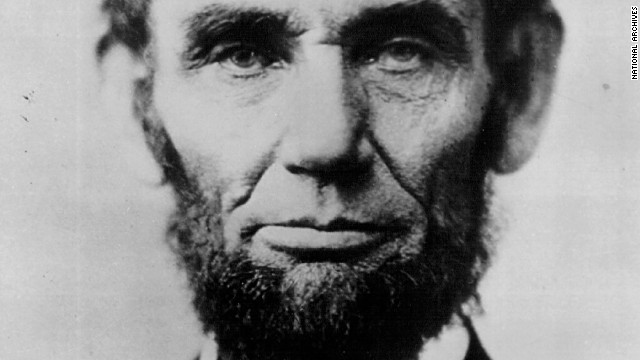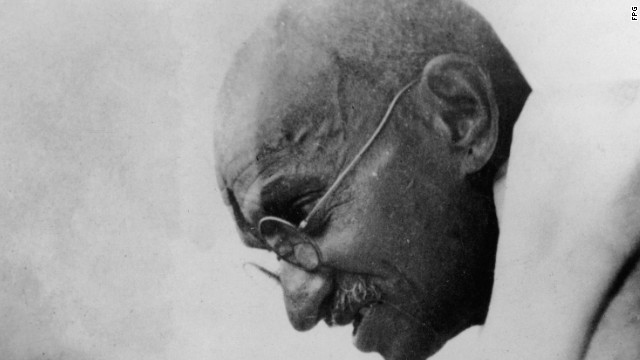 Mayer is CEO of
Yahoo, one of a handful of women who have reached the pinnacle of their
industry. Known for her fierce intelligence, she admitted in a Vogue interview to being "geeky and shy." She forces herself to stay at parties for a fixed period of time even if she is having a bad time.
Mayer is CEO of
Yahoo, one of a handful of women who have reached the pinnacle of their
industry. Known for her fierce intelligence, she admitted in a Vogue interview to being "geeky and shy." She forces herself to stay at parties for a fixed period of time even if she is having a bad time.
 Widely considered
America's greatest president, Abraham Lincoln's legacy includes ending
slavery and preserving the Union. He may well have achieved this through
his introvert traits. Susan Cain, author of "Quiet: The Power of
Introverts in a World That Can't Stop Talking" has said that he was "praised for not throwing his weight around, for (not) acting superior."
Widely considered
America's greatest president, Abraham Lincoln's legacy includes ending
slavery and preserving the Union. He may well have achieved this through
his introvert traits. Susan Cain, author of "Quiet: The Power of
Introverts in a World That Can't Stop Talking" has said that he was "praised for not throwing his weight around, for (not) acting superior." Author of the
bestselling Harry Potter series, author J.K. Rowling is a self-described
introvert and has often talked about the benefits taking time out to be
alone as the best way to be creative.
Author of the
bestselling Harry Potter series, author J.K. Rowling is a self-described
introvert and has often talked about the benefits taking time out to be
alone as the best way to be creative.  The leader of
leader of the Indian nationalist movement and father of non-violent
protest, Gandhi famously said: "In a gentle way, you can shake the
world."
The leader of
leader of the Indian nationalist movement and father of non-violent
protest, Gandhi famously said: "In a gentle way, you can shake the
world."  Her thoughtful
nature has helped Clinton to weather political and personal storms but
it has not stopped her for being criticized for being "cold and
emotionally flat" by people who perhaps don't get her personality type, according to one expert.
Her thoughtful
nature has helped Clinton to weather political and personal storms but
it has not stopped her for being criticized for being "cold and
emotionally flat" by people who perhaps don't get her personality type, according to one expert.  He's the brains
behind the social networking behemoth that is Facebook and a famously
introverted tech geek, as his right-hand woman, Facebook CFO Sheryl Sandberg has said:
"He is shy and introverted and he often does not seem very warm to
people who don't know him, but he is warm ... He really cares about the
people who work here."
He's the brains
behind the social networking behemoth that is Facebook and a famously
introverted tech geek, as his right-hand woman, Facebook CFO Sheryl Sandberg has said:
"He is shy and introverted and he often does not seem very warm to
people who don't know him, but he is warm ... He really cares about the
people who work here."  Awkward and
withdrawn when she was growing up, Eleanor Roosevelt went on to become a
U.S. first lady and U.N. representative Eleanor Roosevelt with "great sensitivity to the underprivileged of all creeds, races, and nations." Imagine you're in a meeting at work.
Awkward and
withdrawn when she was growing up, Eleanor Roosevelt went on to become a
U.S. first lady and U.N. representative Eleanor Roosevelt with "great sensitivity to the underprivileged of all creeds, races, and nations." Imagine you're in a meeting at work.
Everyone else is throwing out ideas, talking loudly and debating.
You know you should say something but it's hard to get a word in so you sit in anxious silence.
Then disaster strikes.
Your boss looks over at you and says: "What do you think?"
In that instant, your brain freezes and you can't think of a thing to say.
If you've ever been
tongue-tied in a meeting, desperate to escape after-work drinks or
stressed out in an open-plan office, chances are you're an introvert.
One quarter to half of us are introverts, depending on which study you look at.
Introversion and extraversion is real -- and even genetic
Dan Cable, Professor of Organizational Behavior at London Business School
Dan Cable, Professor of Organizational Behavior at London Business School
Introversion unpacked
Introverts are often misunderstood.
"It's really about energy," says Marti Olsen Laney, a psychotherapist and author of "The Introvert Advantage."
Introverts generate
energy through reflection and quiet time while an extraverts' energy is
increased by spending time in busy, stimulating places often with lots
of people around, according to Olsen Laney.
"Introversion and
extroversion are real -- and even genetic -- and genuinely change the
way the world looks to those people," says Dan Cable, Professor of
Organizational Behavior at London Business School.
"The key is not to think
about two categories but a continuum," notes Tomas Chamorro-Premuzic,
Professor of Business Psychology at University College London and author
of "Confidence: The Surprising Truth About How Much You Need And How to Get It."
"Most people are actually in the middle," he says, adding that each category can have characteristics of the other.
Unlike Asian cultures, which are much more accepting of introverts, the West has long been biased towards extraverts, he says.
Leadership myth
The conventional wisdom, backed up by decades of studies, is that extraverts make better leaders.
"This idea is based on
the false premise that activity equates to productivity, that confidence
signals competence," says Chamorro-Premuzic.
Albert Einstein once said: "The monotony and solitude of a quiet life stimulates the creative mind."
Hulton Archive
A 2011 study
by Harvard Business School, the University of Pennsylvania's Warton
School and University of North Carolina Kenan-Flagler Business School
found that while introverts and extraverts were evenly matched in the
general population, 96% of managers and executives displayed extravert
qualities.
The researchers also
found that although extraverts show many of the strengths people
associate with leadership -- like decisiveness -- the less obvious
leadership qualities that introverts display can be more important in
day-to-day teamwork.
"You really see a
pattern of being conscientious, wanting to do a good job, being
creative, good at problem solving. They're really good at one-on-one
kinds of work," says Olsen Laney.
You really see a pattern of being conscientious and good at problem solving
Marti Olsen Laney, author of "The Introvert Advantage"
Marti Olsen Laney, author of "The Introvert Advantage"
Making it work
Tazeen Ahmad is one person who has used her introversion to excel in the competitive world of broadcast journalism.
"The secret to any
success I've had has been embracing my introversion," she says. "It
means I process things much more. I think deeper, which often leads to
better ideas."
She's been a foreign correspondent for U.S. network NBC and has won awards for her hard-hitting work as a reporter for Channel 4's investigations show "Dispatches" in the UK.
She says that the
stories she tells often deal with terrible loss or big traumatic
experiences -- and her subjects may have suffered abuse.
"I've asked them
pertinent, difficult questions. I hope I come across as who I am --
authentic and genuine -- so they can see that I'm interested in their
story, not just as a journalist, but as a person."
Famously
introverted Microsoft co-founder Bill Gates said "If you're clever, you
can learn to get the benefits of being an introvert," in an ABC
interview.
Chip Somodevilla/Getty Images
Ahmad now regularly shares her wisdom at sell-out classes for introverts at The School of Life in London.
Her latest class is about how introverts can network in a way that works for them.
"If you go to a
networking event and you can walk away with one or two good connections
that you feel are going to pay off, rather than 15 that aren't (that's
success)," she says.
Ahmad also suggested going to networking events with an extravert friend.
"Work the room together. They will make the connection and you will make it deeper."
Bridging the gap
Introverts can often feel overstimulated in meetings and in open-plan offices.
"Everything they are
doing there drains energy, whereas for an extrovert all those things
give them energy," explains Olsen Laney.
In those situations, introverts can find it hard to think or make on-the-spot comments.
Olsen Laney says introverts have to develop skills to tell extroverts what is going on with them.
"When an introvert is sitting in a meeting and not 'participating,' others can read disinterest," she says.
To combat this, she says
introverts should practice non-verbal ways of showing they are engaged,
like taking notes, or giving silent cues to the people who are talking.
Because they need
private time to reflect, Olsen Laney suggests they approach their boss
after a meeting, and offer to send their thoughts via email.
Beating the odds
Reflect upon when you come up with your best ideas
Nancy Ancowitz, coach and author of "Self-Promotion for Introverts"
Nancy Ancowitz, coach and author of "Self-Promotion for Introverts"
Introverts can thrive in
any work environment, but it's about knowing what works for you, says
Nancy Ancowitz, a business coach and author of "Self-Promotion for Introverts".
She says many of her clients work in very extroverted industries, like sales and trading.
"Reflect upon when you come up with your best ideas, when you do your best work, when you are in your zone.
"Most introverts I have
worked with find it's usually about collecting those ideas in alone time
when they can write something down or (have) quiet time," she says.
For Ancowitz's money, though, the most powerful thing an introvert can do is learn public speaking skills.
"The beauty of public
speaking is that it's not hard to learn. As long as you can speak to one
person you can speak to a thousand."


No comments:
Post a Comment